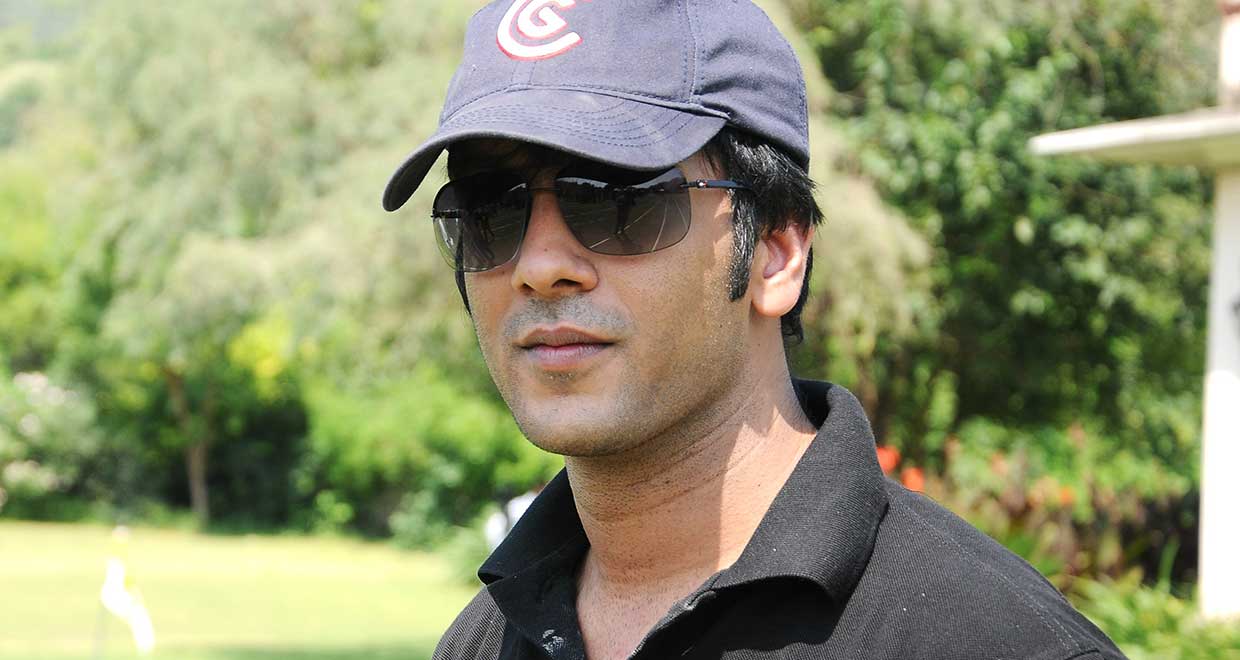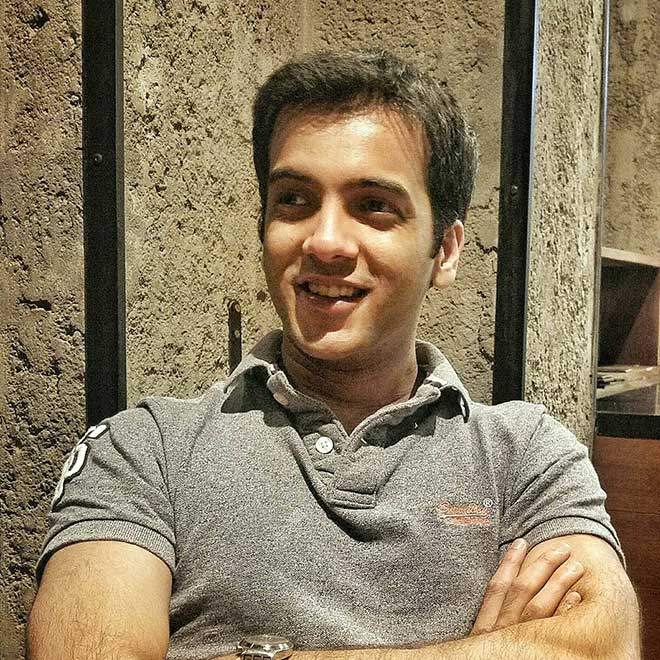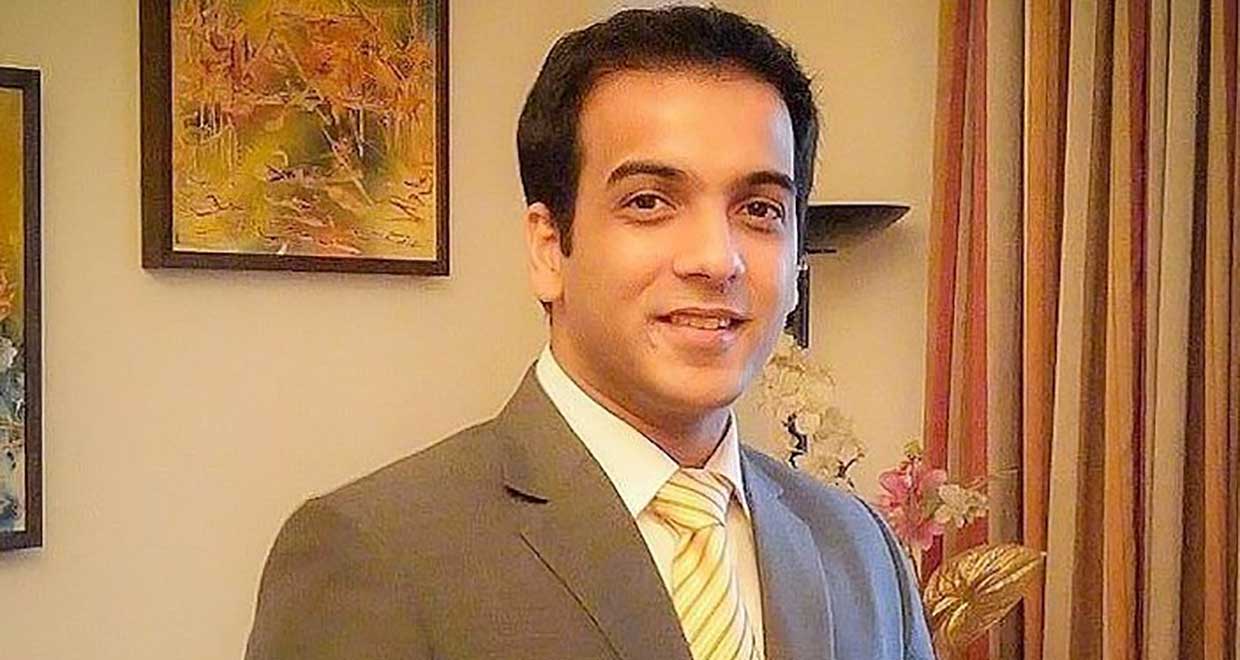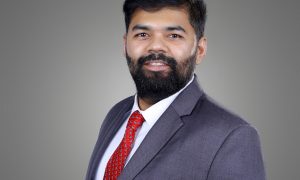Yudhist Narain Singh graduated from Symbiosis International University in 2009. Since then he has worked at Fox Mandal Little as Corporate and Real Estate Lawyer, at the Supreme Court as Legal Counsel, at Tata Sky Ltd., and J. Sagar Associates. He is currently working with Khaitan & Co., where he specialises in Real Estate matters and Stamp Duty structuring/advise.
In this interview we speak to him about:
- Being a real estate lawyer
- His experience in legal writing
- Working at Tier-I firms
How would you like to introduce yourself to our readers?
I’am a lawyer specializing in real estate and stamp duty laws presently retained by Khaitan and Co. I advise clients (both international and domestic) on a wide array of real estate/stamp duty related matters such as conveyancing, leasing, transfer through schemes of arrangement, stamp duty structuring, negotiations etc. Previously, I advised regularly on various corporate/commercial/regulatory/international laws and dispute resolution which has provided me with a diverse and sound platform for understanding client requirements.
In your opinion, what are the activities you would recommend as necessary experiences for every law student?
Law school is probably the best phase in one’s journey of becoming a lawyer and while it is important to have fun and develop as a person, it is also very important to retain a career oriented focus. While activities such as participation in moot courts, pro-bono /legal aid activities etc. are important, I’am of the firm view that good internship(s) play a vital role in skill development and enable law students to understand the profession they are entering into. The time spent in law school is mostly centred around academic development while internships/on the job training provide law students with an unadulterated and realistic view of how the legal profession works which enables the student to gauge whether they have the correct aptitude to work with law firms, a senior advocate etc. Good internship’s also helps create a discipline of hard work, quick thinking, research skills, presentation abilities etc. which are absolutely crucial to one’s career development. Leading firms often base their recruitment decisions for a candidate solely on the basis of their work delivery during these internships.
Paper publications do help in introducing yourself to the legal fraternity and growing visibility. However, it is very important to research extremely well on the topics that one is writing about. This development of research skills as a student goes a long way in making you a better lawyer. I also highly recommend that authors continue to be actively updated on the latest happenings on topics which they have written previously. Clients/prospective clients tend to follow up and gather information which a lawyer needs to be up-to-date on at all times.
That said, it is important to have a blast and enjoy law school! Those memories will stay with you forever!

Tell us how you developed an interest in Real Estate Law.
At the beginning of my career I was blessed to gain a broad exposure working on various laws in both international and domestic environments. However, right from my first day in the profession, I have been actively involved in various real estate matters and gradually developed a keen interest in this sphere of law. My family also actively invested in various properties which gave me a sound practical knowledge of how the business side of real estate operates. During my international stints, I always took a keen interest to understand lands laws of different jurisdictions and consistently compared it to the regime in India. A few years back, I became actively involved in several large real estate transactions which provided tremendous opportunities for me. At the conclusion of these transactions, the sense of satisfaction and reward helped me seal the deal and made me decide that I was going to focus solely on real estate and stamp duty matters. It is truly a pleasure to invest oneself fully in a subject which one is passionate about!
What internships would you recommend to a student who also aspires to profess in the same area of law?
Real Estate is a subject which touches every strata of society. Therefore, most of the lawyers I have met have dealt with certain aspects of real estate law in some form or the other. However, this area of law is very vast, substantive and specialized. Most lawyers tend to have dealt with only matter specific areas of real estate law. In order to truly understand whether real estate law is for you, you must work with a specialized real estate team who have the requisite skill-set and knowledge to advise the client correctly on real estate matters. Land revenue work, a complete understanding of transfer/devolution of title of property, advise in relation to mortgages/the effects of creating a charge on immovable properties, stamp duty implications in transactions etc. require a certain degree of specialization which only comes to those who are dealing with these subjects day in and day out. Therefore, I suggest that anyone seriously considering to specialize in this direction should intern with a specialized team. It is a very interesting and challenging area of law!
A very solid understanding of the Transfer of Property Act, Indian Easements Act, Indian Stamp Act, and Registration Act etc. is a fundamental pre-requisite in this area of practise and one needs to be conceptually clear as you will keep referring back to the bare act/commentary on a regular basis while advising clients.
From your experience in legal writing, please share with our readers the kind of topics that one must write on if they hope to get their work published in reputed journals.
In my view writing on relevant and burning topics is a huge value-add as a professional since it requires a lot of research and requires the author to view the topic from an objective third-person standpoint. During this research, you often get a clear perspective of what are the happenings at a macro-level in the nation while also being able to see how new legislation/change in the regulatory framework is actually affecting people at the ground/local level.
For instance, in the early days of demonetisation people tended to take a very sceptical and negative view for real estate. However, with the passage of time and the governments thrust on the implementation of Real Estate (Regulation and Development) Act, single-window clearance regulations for getting building approvals, proposals by various States to lower circle/revenue rates etc. there is a new sense of enthusiasm in the real estate market and people are expecting the market to come back in a highly transparent and regulated manner with a more realistic market value. Therefore, a great amount of research and objectivity is required to draft a sound and balanced article. International journals/publications required the latest position on relevant topics which need to be well researched and represented in a succinct and clear manner for people in various jurisdictions to easily understand. In my view as a legal professional writing regularly does increase market visibility and helps you to stay up-to-date on many issues.

Please share details of your Ashurst internship experience with our readers.
Working/training at Ashurst and/other well-established international law firms in a foreign jurisdiction provides great insight and learning. In many ways these firms work in a highly structured and efficient environment which most Indian firms cannot even fathom. As a trainee, one gets access to research tools, learns drafting skills, attends international conferences/forums etc. which one would not ordinarily have exposure to in India at such a young age. In my view, stints with law firms abroad are essential in developing and broadening a young lawyers own outlook on a global scale and broadens your view of the legal profession. It teaches young lawyers to work in a culturally diverse environment and really shows you that professionalism can overcome any cultural/language barriers irrespective of the backgrounds of the people you are working with. Today, I have a huge level of comfort working with various international clients which stems from the international opportunities that I actively participated in at the beginning of my career. While working in London, Rome, Paris and Milan was rewarding, travelling on work at a young age really changes your outlook towards the world and people, not only as a lawyer but also as a person.
Please describe your experience at Gianni Origoni Grippo Cappelli & Partners, Milan.
Gianni Origoni Grippo Cappelli & Partners is truly a world class firm and my secondment experience with the firm was very good. Even though Italy has its origin in civil law jurisdiction, the cross-border investment transactions that I was involved in was very insightful and challenging and taught me that irrespective of jurisdictions, corporate commercial deals (and diligence/documentation) is very similar all over the world. Working in a truly European firm also exposes you to how seamless business is within the EU, and the significance of international treaties/charters.
International firms look for young lawyers who are bright, hardworking and are willing to work in a culturally diverse environment. They look for young candidates who have a global perspective and senior foreign lawyers are very interested in learning about Indian laws and cultures. A global perspective of the inbound/outbound deals and macro understanding of the Indian economy are crucial. Excellent command of the English language and clear communication/presentation skills are a pre-requisite as most international opportunities have huge business development roles/involvement as well.
Give us some insights on the qualities that Tier-I firms look for in prospective candidates.
(Yudhist has work experience at Jyoti Sagar Associates as well as Khaitan & Co., two of the most sought after firms by law students.)
Khaitan and Co. is an excellent firm to work for and there is a surge of energy when you arrive at office everyday which cannot be described. It has a pro-active “can do” environment and does not shy away from taking on extremely challenging assignments from clients. They have adopted globally accepted best practises and the firm has a solid foundation on the basis of which it has grown consistently. The Partners are very approachable and there is a lot of positive synergy between teams/resources. Similarly, J. Sagar Associates was also a good firm to work with.
Tier-1 firms look for young bright candidates who have a positive attitude and clarity of thought. These firms expect that these candidates have their fundamental legal concepts extremely clear. In my view, these firms know very well that new lawyers (in their first or second year) are not going to be experts and invest a tremendous amount of time and resources developing and training these young resources. In my experience Tier-1 firms adopt a long-term perspective for their candidates with a view to helping them grow so that the relationship between the firm and the candidate is a mutually beneficial one.
How important are grades in order to get into a Tier-I firm?
In my humble view, the law school or GPA is no measure of how good a lawyer is going to be! This is not to discourage people who have worked hard to get into top tier law schools, but in reality, I have seen it is your personal motivation and willingness to learn and grow that makes you the lawyer that you are.
Can you tell us about your experience with Tata Sky Ltd. as legal counsel?
My role at Tata Sky was a challenging and refreshing one! The work undertaken by me was mainly in relation to regulatory laws as the DTH industry was highly regulated by the Ministry through TRAI. This role involved interpretation of various regulations and involved actively lobbying/interacting with various government bodies and officials. It taught me a lot in terms of how to handle government departments and made me realise that corporates and government bodies can find common ground for development of an innovative and relatively unexplored industrial sector. Additionally, the AGR matter in the Supreme Court was particularly a challenging matter to work on and it also gave me a great opportunity to brief/work with Mr. Arvind Datar who I sincerely feel is a phenomenal Senior Advocate.
In my view, working at in-house teams in India is very subjective. It is based solely on the organisations requirements. Some companies have cutting edge in-house legal teams which are at par with law firms (for instance Facebook, TATA Sons, Google, PepsiCo.) while others merely have legal ‘managerial’ roles. For prospective law students considering to join an in-house team my advise is to really do some thorough research on the team and its involvement in the company’s operations. As a practising lawyer, I would always advise fresh law graduates to practise for a while before settling for an in-house position in order to determine what this profession has to offer.
Younger law schools do not have the benefit of a well-connected Recruitment and Placement Cell or an established alumni network. How should students from these colleges go about applying for internships or jobs and overcome this disadvantage?
I agree that established and prominent law schools, especially the National Law Schools have a firmly established presence with an unmatched alumni which makes it easier for recruitments from these schools.
This profession involves a lot of resilience –keep applying irrespective of the outcome and keep wanting to grow no matter what the circumstances. Study hard, publish well researched articles regularly, grow visibility, and participate in moots/debates. It is vital to add value to not only to yourself but the institution that you are studying in. Every law school was once new and it takes years to establish one-self in a highly saturated market. I sincerely believe if you are hardworking and earnest, an opportunity will click in your favour!
What would be the specific career advise you would give to persons entering into the legal profession?
I would advise fresh entrants as follows:
- Enter the legal profession with an open mind without limitations and a positive outlook.
- Simply put, there is absolutely no alternative to hard work and putting in the hours.
- Take on all the work you are given, everything is a learning opportunity.
- There are no failures, only lessons learnt. It is a tough profession and it is vital to be resilient.
- It sounds clichéd, but don’t focus on money solely at the start of the profession, it will come.
- Gradually develop a long term view of where you want to be.
- This is a highly competitive profession and I am of the firm view that you must find your own niche area which should be based ideally on a subject you enjoy.
- Enjoy this noble profession. It is as rewarding as it is challenging!
























